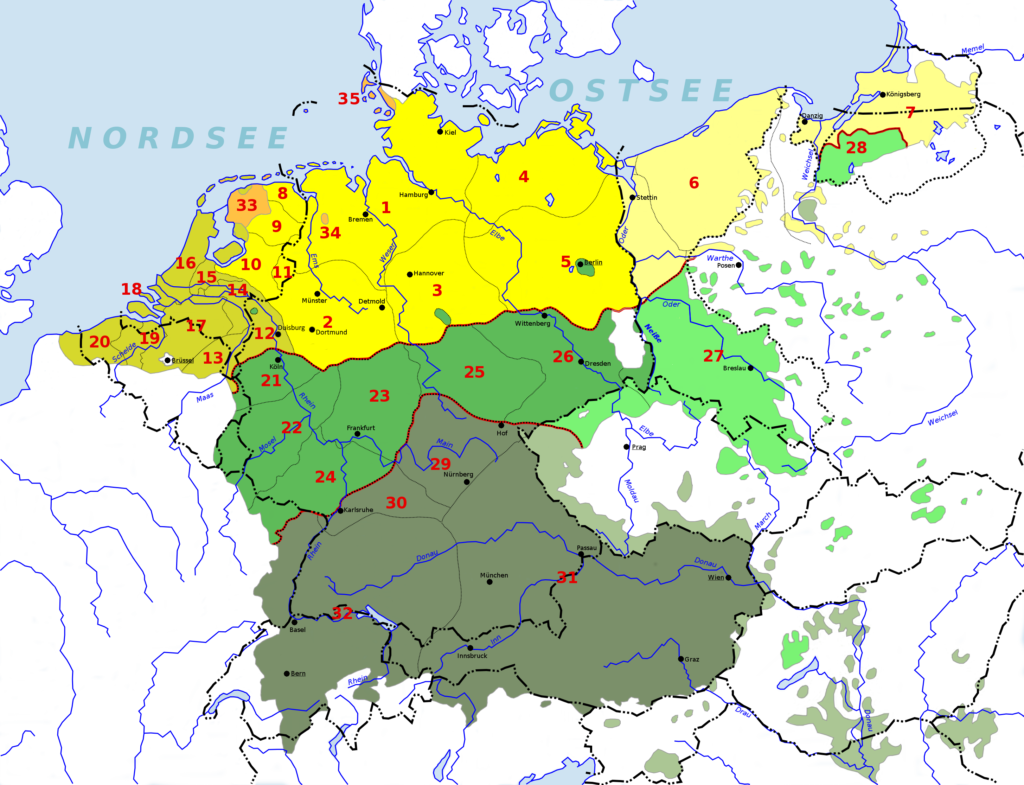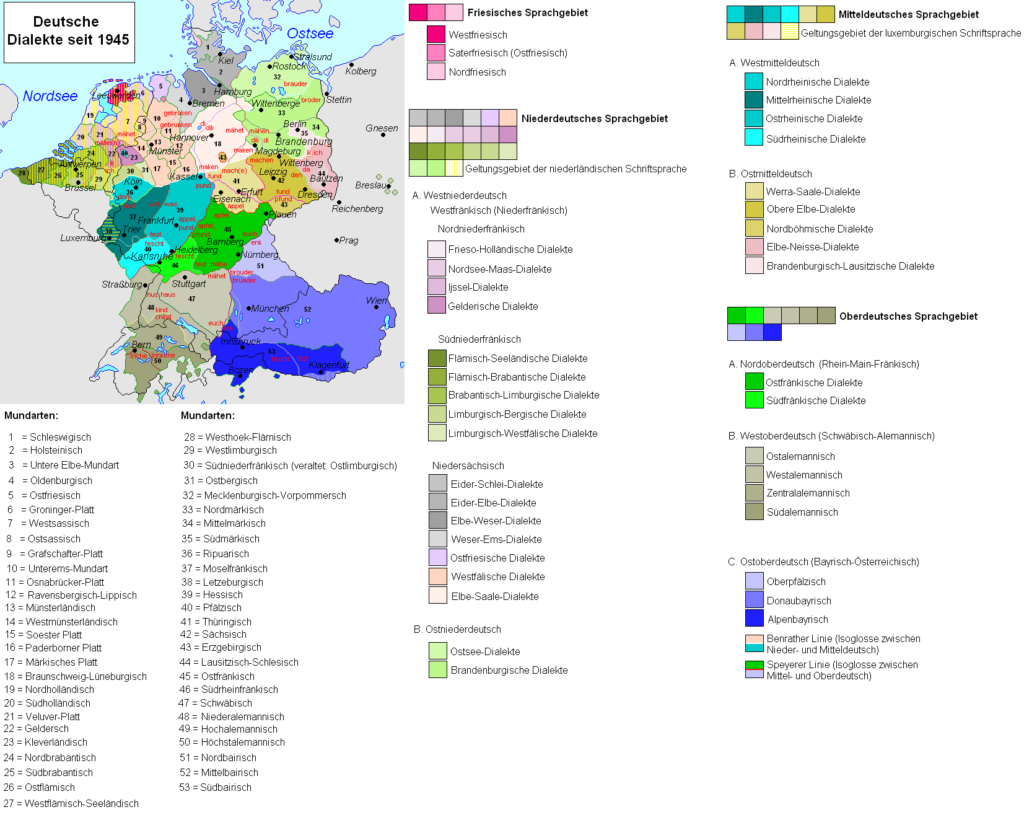I recently got asked by my girlfriend which is the most spoken dialect in Germany, and since I could not answer this question I went ahead and did some research.
Dialects are roughly divided by north, south and center, with the center being divided into east and west. Since 40% of all native speakers live in the North, it is the most commonly spoken dialect.
Every German learns standard German at school, and usually they speak a slightly changed standard German (with swallowed endings) with each other. Only old people have a hard time to stop using dialects.
Biggest Dialects

German dialects can be roughly divided in into the north, the south and the center, with the center being divided into easy and west. If you are living in Germany you will be able to divide those even further, especially in the region you are living in.
I can name at least 20 different varieties of my own dialect and I m living in the smallest federal state of Germany (if you do not count cities). Drive for 20 minutes, and people start to speak a lot different from yourself.
The North of Germany, which is situated North of a line passing through Cologne and going to south of Berlin represents nearly 40% of all the native speakers of the German language.
The South consists not only of parts of Germany such as Bavaria and Baden-Württemberg but also Austria, Switzerland and Lichtenstein. In this region live roughly 35% of all native speakers.
The East makes up 10% of all the native speakers and includes the federal states of Saxony, the Southern half of Saxony-Anhalt and Thuringia.
In the West we find about 15% of the native speakers (this is where I live). This group also includes Luxemburg.
Even Germans Can’t Understand All German Dialects

They absolutely cannot. I have recently listened to some Bavarian dialect, together with my girlfriend and i had a very hard time following the dialogue.
The problem here is that dialects tend to swallow and/or change parts of words so if it is spoken quickly I don‘t understand every word. Of course I will still be able to follow roughly follow the conversation but it‘s hard.
There are German dialects that sound nothing like German at all. To me, they feel more like Dutch and after some time I just give up trying to understand them.
Imagine how you felt when you did your first German listening comprehension exercise. Those dialects make me feel exactly like this.
The good news is almost no one is speaking like this in Germany and the chances to meet someone who actually does are close to zero. You should however, expect old people to speak with a thicker dialect than younger people, especially if they are older than 70.
The language that most Germans use is some variation of standard German. Of course they will use characteristics of their local dialect, but it will not be so much that you are not able to understand it.
What happens most frequently is that Germans will swallow the endings while speaking. This occurs naturally as you start to speak faster.
Ich habe → Ich hab
Ich gehe → Ich geh
In Saarland we use „ned“ instead of „nicht“
Ich habe deine Jacke nicht → Ich hab deine Jacke ned
Ich kann nicht → Ich kann ned
Apart from this it can also happen that you will occasionally hear words of the local dialect.
Each dialect has a set of words, for which no cognates exist in standard German. These words are usually not understood elsewhere in Germany, but they make up a very small percentage of the dialect.
For example here in Saarland we use Krumbeere for the word Kartoffel (= potato).
In general, central dialects tend to be understood elsewhere more easily while southern dialects, especially those of southern Bavaria, Switzerland and Austria are not understood outside of this regions. (There are even Swiss dialects not understood in all parts of Switzerland for example)
The same applies for northern dialects which are also not understood elsewhere.
Learn The Right German
You should learn standard German. Period. Every German learns it and will be able to understand you, if you speak it. Depending on what your reason for learning the German language is, you will also be required to speak it at various places.
If you want to work here and you only know how to speak a dialect, you will have zero chances of getting a job, except for small local jobs.
Dialects are becoming less and less used in Germany and because of that there really is no reason to learn them at all.
You will be able to pick up some of the things which Germans use while communicating whith each other, by staying in Germany for a while.
As far as i know there is no place where you are able to learn German Dialects without knowing standard German first.
If you are really interested in learning a local dialect, then your best choice would be to move to that area and start learning German without taking any courses at all.
What Dialect Is The Closest to Standard German?
The most similar dialect is spoken the eastern central part of Germany (Upper Saxony), which quite surprised me as a native speaker (Saxons sound kind of weird to me every time they use words containing the letter O)
The dialect of Upper Saxony (and its surroundings) is lexically, grammatically and orthographically can be said to be closest, since there is no city or region where only standard German is spoken.
This can be attributed to the fact that Martin Luther used it when he translated the bible.
You should, however, keep in mind that it still sounds completely different from standard German.
If you want to go to a place where you have a good chance of using what you have learned, or where you can improve your skills without having to get used to language you should probably choose Hannover
Hannover is said to have the „purest“ German so you would probably be able to understand the people over there very well.